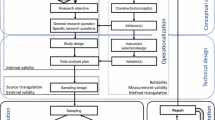Abstract
The author describes a team taught (philosophy/agriculture) professional ethics in agriculture course at Cal Poly, San Luis Obispo. He shows how the teaching, student selection (half agriculture, half non-agriculture), topic selection and class projects (mock public forums on critical issues aimed at achieving a public consensus) were chosen to achieve one main goal, a professional ethics aimed at public service. A second goal, public awareness of the legitimate needs of agriculture, is pursued simultaneously.
The public-good orientation of this model of professional ethics is distinguished from the frequent professional-defensive role found in other fields. The author indicates that agriculture's need for publicly effective and credible leadership makes the older defensive models useless today as well as wrong, given the common-good goals of ethics.
A short list of goals of agriculture is proposed: sufficient, sustainable and healthy food/fiber supplies by means which respect the dignity of all participants. From these goals it is claimed that consensus “first principles” of agricultural ethics can be constructed. More fundamental first principles, such as the golden rule, are given their appropriate role.
From these some simple criteria for the problem solving efforts of the students are suggested: broad consideration of technical and human impacts (no dismissal of impacts as “externalities”), awareness of the need for technical information, consideration of risk-reducing alternative tools or policies, and fair, humane and consistent risk/benefit analysis.
The author concludes with a description of the impact on students, the importance of the role model of agriculture teachers in the course with the resultant importance of the team-taught format, and the need for special administrative support to attain the goals of the course.
Similar content being viewed by others
References
Chaisson, Christine; Barbara Peterson, Jane Eickhoff, 1987.Pesticides in Our Food, Washington, D.C.: Technical Assessment Systems,
Dundon, Stanislaus, 1983 a. “Hidden Obstacles to Creativity in Agricultural Science.” In R. Haynes (ed.),Proceedings of the Agriculture, Change and Human Values Conference, Gainesville: University of Florida.
and Korten, David, 1983 b. “Learning to Aid the Poor, A Curriculum Proposal.” In R. Haynes (eds.),Proceedings of the Agriculture, Change and Human Values Conference, Gainesville: University of Florida.
Jones, Pamela. News Release, May 18, 1987. Sacramento: Alliance for Food and Fiber.
National Research Council, 1987.Regulating Pesticides in Our Food: The Delany Paradox, Washington, D.C.: National Academy Press.
Shepard, Philip T. and Hamlin, Christopher. (forthcoming)Deep Disagreements on Agriculture.
Additional information
Stanislaus J. Dundon is a Professor in the Philosophy Department of Cal Poly, San Luis Obispo. He is trained in history and philosphy of science and technology and teaches principally in ethics in the applied sciences. To prepare himself for work in agriculture, starting in 1980 he spent two years in Washington, D.C., first as a Congressional Fellow in the office of Representative George Brown whose committee oversees the USDA, agricultural research and foreign agriculture. He later obtained Rockefeller support to study human values in agriculture, working partly at the Center for the Study of Values at the University of Delaware and partly at the National Agricultural Library, and also at the University of Maryland teaching the history of agricultural sciences. During this time he began to publish on agricultural issues, dealing with risk/benefit analysis, research policy and agricultural development.
Upon return to his campus, he established, with a group of agriculturists, the first team-taught courses in agricultural ethics in the country. He and his faculty team give presentations on agricultural ethics to professional farm advisor groups in California.
Rights and permissions
About this article
Cite this article
Dundon, S.J. Professional ethics in the classroom. Agric Hum Values 5, 84–91 (1988). https://doi.org/10.1007/BF02217651
Issue Date:
DOI: https://doi.org/10.1007/BF02217651




